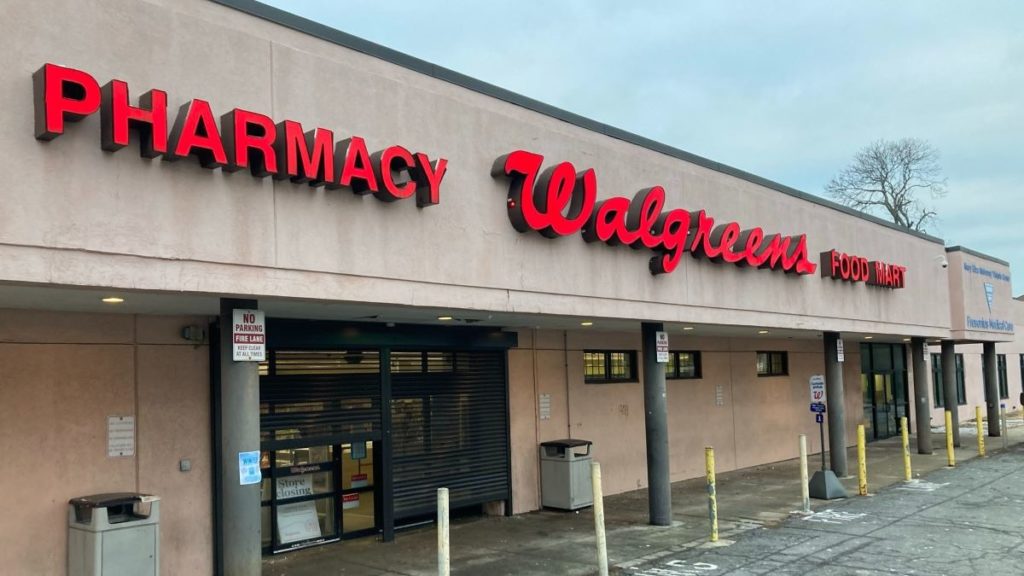The Walgreens on 416 Warren Street in the Roxbury neighborhood of Boston shut its doors on Jan. 31. Roxbury is the heart of Boston’s Black community, and this marks the fourth in a recent series of closures throughout predominantly Black and Brown working class neighborhoods of Boston.
The nearest pharmacies are more than a 20 minute walk away — too far for elders and many disabled community members. Forty-four percent of Roxbury residents do not have access to a car, and Boston’s public transit is notoriously unreliable.
The store was originally set to close on Jan. 15. Residents and local church organizations organized a protest on Jan. 12, speaking about the pharmacy’s importance to seniors and surrounding residents. In response to the community outrage, Walgreens delayed the store’s closure to January 31.
The closure attracted national attention, prompting U.S. Senators Elizabeth Warren and Ed Markey and U.S. Rep. Ayanna Pressley to send a letter to Walgreens CEO Tim Wentworth requesting the store remain open.
‘Pharmacy deserts‘ — a feature, not a bug, of capitalism
This removal of life-saving medical care is not taking place evenly across the city. Walgreens has 18 stores all across Boston, but the only stores closed in recent years have been in neighborhoods which are home to Boston’s Black and Caribbean diaspora communities: Roxbury, Hyde Park, and Mattapan.
When many pharmacies close in the same area, it’s called a “pharmacy desert” — a section of the city with little to no direct access to essentials like diapers, baby formula, and pharmaceuticals.
This racist dynamic is a fundamental feature of capitalism. All over the United States, pharmaceutical companies are closing their doors in working class neighborhoods: in Houston, San Francisco, Seattle, Tallahassee, Fla., Des Moines, Iowa and more. A 2022 study found 670 pharmacy deserts in the four largest cities in the U.S. — New York City, Los Angeles, Chicago, and Houston — 667 of which were in nationally oppressed neighborhoods.
Under capitalism, working class and oppressed communities have no say over what is built in their neighborhoods. Rather than the people of Roxbury deciding the fate of the pharmacies and other essential services in their neighborhoods, that privilege is given to the capitalist owners of Walgreens and other companies who prioritize their profits over the health of millions of people across the country.

This is in stark contrast with the model of socialist Cuba, where residents are organized into neighborhood committees who have a real say in the development of their communities. If the immense wealth of the U.S. was in the hands of the working class, it would be trivial to dramatically expand access to medication and healthcare in all neighborhoods.
Dispelling the myth of a ‘shoplifting epidemic‘
Target and other retail stores have spun a narrative that their stores are closing due to the overwhelming cost of theft. They say that rampant shoplifting is cutting into profits, forcing them to close despite the best intentions of their corporate owners.
This narrative, amplified by corporate-owned media outlets, is a baldfaced lie. Data shows that shoplifting rates have been trending downward since 2018. The racist myth of a “shoplifting epidemic” is nothing more than an excuse for increased police repression in oppressed neighborhoods.
The real reason Walgreens, CVS, Rite-Aid, and other drugstore chains are closing in record numbers is competition. After forcing thousands of independent pharmacies out of business, retail pharmacies are now unable to compete with the cheaper household goods offered by monopolies like Amazon, Walmart, and Dollar General. As a result, Rite-Aid filed for bankruptcy in October 2023, while CVS and Walgreens attempted to move away from storefront pharmacies and into the primary healthcare sector.
This is simply capitalism at work: when profits drop, companies close down operations as they see fit, and the working class is left in the dust. The solution to this problem is obvious: end the rule of profits and corporations, and put control of business into the hands of the people. Neighborhood enterprises must be operated for the needs of the people, not for profits.





